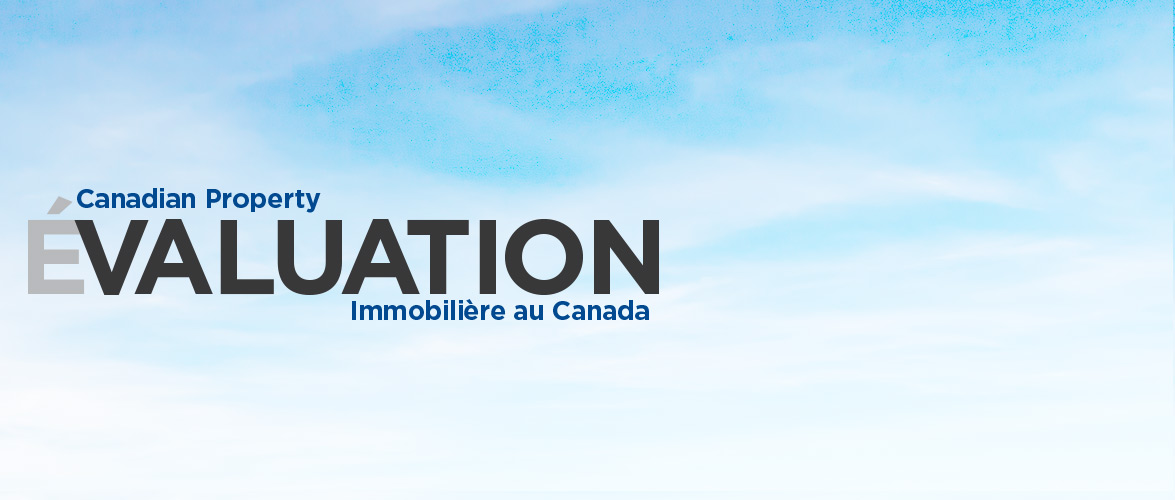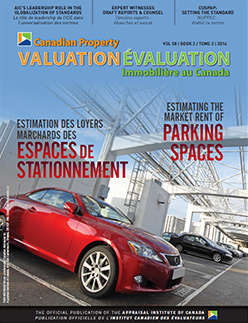Legal Matters – Expert witnesses: draft reports and counsel
Canadian Property Valuation Magazine
Search the Library Online

One particular area in which the independence and impartiality of an expert can be compromised is in the experts’ report preparation process, when drafts are reviewed by instructing counsel.
By John Shevchuk, Barrister & Solicitor, C.Arb, AACI (Hon)
An appraiser retained to provide an opinion in a litigation context invariably prepares one or more drafts leading to a final report. A common practice has been to provide draft reports to instructing counsel for review and comment. However, a recent Ontario court decision, Moore v Getahun 2014 ONSC 237 [Moore], raises the prospect of an outright ban on counsel’s review of and comment upon draft reports.
To appreciate the new development that Moore might be ushering in, some historical perspective is helpful. Certainly by the 1980s, if not sooner, there was a general concern within judicial circles that expert witnesses very often act as advocates for the parties hiring the experts. The matter came to a head in some jurisdictions with the enactment of rules of court expressly stating that experts have a primary duty to assist the court in which they appear as witnesses.1
One particular area in which the independence and impartiality of an expert can be compromised is in the experts’ report preparation process, when drafts are reviewed by instructing counsel. The Supreme Court of British Columbia decision in Vancouver Community College v Phillips Barratt (1988), 26 B.C.L.R. (2d) 296 [VCC] is a case in point, where it was discovered during cross-examination that counsel played a significant role in the experts’ report writing. Understandably, the court was not impressed and the experts’ opinions were rejected. Justice Finch (as he then was) wrote the following:
I in no way wish to condemn the practice of an expert’s editing or rewriting his own reports prepared for submission in evidence, or, for that matter, prepared solely for the advice of counsel or litigants. Nor do I wish to condemn the practice of counsel consulting with his experts in the pre-trial process while ‘reports’ are in the course of preparation. It is, however, of the utmost importance in both the re-writing and consultation processes referred to that the expert’s independence, objectivity and integrity not be compromised. I have no doubt that, in many cases, these ends are achieved, and counsel and experts alike respect the essential boundaries concerning the extent to which a lawyer may properly discuss the expert’s work product as it develops towards its final form.
Historically, the concern that instructing counsel may be playing too great a role in the report preparation has been addressed through orders for production of an expert’s draft reports, the working file and cross-examination of the expert witness regarding the report preparation and counsel’s involvement. Until the court’s decision in Moore, it is fair to say that counsel would have regarded these measures as appropriate safeguards against counsel becoming too involved in the report generation. Most counsel would not want to risk damage to an expert’s credibility by becoming so involved as to influence the opinion; if counsel did cross the boundary, the court could deal with the situation upon a review of the draft reports and cross-examination by the opposing side. The changes from one draft report to the next are something of a road map showing the expert’s thought processes and possibly the degree to which the expert has been inappropriately influenced by instructing counsel or clients. Cross-examining counsel uses the drafts in an attempt to show that the expert has left the realm of non-partisanship and become an advocate for the party retaining the expert. Through this process, the decision-making tribunal has the opportunity to assess the impartiality of the expert.
Finch J. provided additional guidance in a speaking engagement:2
… in my view “counsel and expert communications” are critical in developing opinion evidence that will be reliable, and useful, to the court. I should think that such communications are equally critical to the usefulness of the expert’s opinion from the client’s point of view. An opinion which is not objective cannot be any more helpful to a client in deciding whether to go to court, than it can be to the court in attempting to find the truth.
… I do not think there are, or should be, any limitations on the pre-opinion, or pre-trial, exchanges between counsel and their expert advisers, or the manner in which they take place…
I do, however, think that when the decision is made to adduce the expert’s opinion into evidence, either orally or in writing, counsel must anticipate the prospect of a thorough cross-examination, and decide whether the anticipated good will outweigh the possible bad. The trustworthy expert will not be uncomfortable about disclosing his pre-trial communication with counsel. Nor will counsel be embarrassed if his communications were directed toward refining an objective opinion based upon reasonable factual assumptions.
One would not be surprised if this was a generally held view among the judiciary, at least up to the introduction of recent rules governing expert witnesses. However, in Moore, Justice Wilson took the view that the enactment of the new rules should be interpreted as requiring a change to the existing practice and should be regarded as imposing a ban on the review of draft reports by instructing counsel.
Moore was a medical malpractice case in which the plaintiff alleged that the defendant doctor improperly treated a minor injury, with the result that there was permanent impairment to the plaintiff’s arm. During the course of the trial, it was discovered that one of the experts called on behalf of the defendant had engaged in an hour and one-half discussion with defendant’s counsel regarding a draft report prepared by the expert and that, following the discussion, the expert altered his report to conform with suggestions made by the defendant’s counsel. One of the specific evidentiary issues considered by the court was whether it is appropriate for counsel to review draft reports of experts and provide input to shape the drafts.
At paragraph 50 of the Moore decision, Justice Wilson noted that, under Ontario’s new expert witness rules, the expert’s primary duty is to assist the court. In fact, in Ontario and British Columbia, expert witnesses provide declarations acknowledging this duty and agree to abide by it. The heavy emphasis of the new court rules is to ensure the independence and integrity of the expert. With this backdrop, Wilson J. wrote at paragraph 52 that, “The practice of discussing draft reports with counsel is improper and undermines both the purposes of [court rules for experts] as well as the expert’s credibility and neutrality.”
At paragraph 299, Wilson J. stated that, if counsel wants clarification or amplification after receiving an expert’s final report, these should be sought through written communication disclosed to the opposing party. At paragraph 520, the learned judge held that, “There should be full disclosure in writing of any changes to an expert’s final report as a result of counsel’s corrections, suggestions, or clarification, to ensure transparency in the process and to ensure that the expert witness is neutral.” In other words, counsel should only be requesting the kinds of alterations to expert reports that will not be embarrassing to the expert or to counsel when disclosed to the opposing side or to the court.
At the time of writing this article, there is no report that Moore has been considered by other courts. Commentators reviewing the Moore decision are uncertain of its precedential value in future cases. Undoubtedly, it will be referred to, but whether or not the restriction suggested by Wilson J. is adopted by other courts, the case nevertheless points to the hazard that can result from an expert dealing too closely with instructing counsel or, indeed, the client.
It could be said that it is not enough that an expert be independent and impartial; the expert must also appear to be independent and impartial and the more communication there is between the expert and instructing counsel, particularly if not restricted to written communication, the greater will be the danger that a court or other tribunal will form a negative opinion of the independence and impartiality of the expert. It is suggested that this applies whether or not there is a ban on counsel review of drafts. As the decision in Laichkwiltach Enterprises Ltd v F/VPacific Faith (The), 2007 BCSC 1852 shows, unless the tribunal can be satisfied that the expert’s report has not been influenced by instructing counsel or the client, there is the very real possibility that little or no weight will be afforded the opinion.
A parting practice suggestion in light of Moore is the need to obtain a fulsome, comprehensive letter of instruction before the preparation of the expert opinion report begins, in order to limit the need for subsequent ‘clarification and amplification.’ This was good advice before Moore and it remains a good litigation approach. In addition to helping an appraiser appropriately assist a tribunal, a good letter of instruction will aid an appraiser in complying with the requirements to produce reports that are not misleading and to avoid situations that create a perception of or actual conflict of interest.3
End notes
1See, for example, the Ontario Rules of Civil Procedure, Rule 53.03 and Form 53 of those rules, and the British Columbia Supreme Court Rules, Rule 11-2.
2The Continuing Legal Education Society of British Columbia, Experts and Experts’ Reports ‘The Court’s Perspective,’ The Honourable Justice Lance S.G. Finch (as he then was), November 1988.
3Canadian Uniform Standards of Professional Appraisal Practice, sections 4.2.11, 5.3 5.11, 14.7.
Note: This article is provided for the purposes of generating discussion and to make practitioners aware of certain challenges presented in the law. It is not to be taken as legal advice. Any questions relating to the role of the appraiser as an expert witness should be put to qualified legal and appraisal practitioners.





